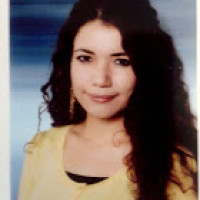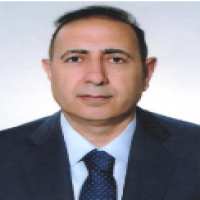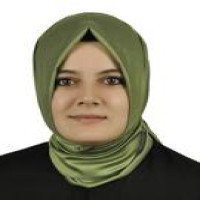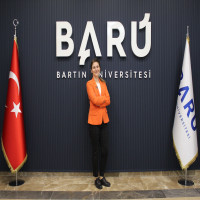Systematic Reviews and Meta Analysis
Systematic Reviews and Meta Analysis
1. Sürdürülebilir Kalkınma İçin Eğitim Uygulamalarının Öğrenciler Üzerindeki Etkisinin İncelenmesi: Sistematik Bir İnceleme ÇalışmasıSystematic Reviews and Meta Analysis
2. An Investigation of Studies on the Applications of Multiple Intelligence Theory in Teaching English Language SkillsSystematic Reviews and Meta Analysis
3. İlkokul Öğrencilerinin Matematik Kaygılarına Yönelik Yapılan Tezlerin İncelenmesiSystematic Reviews and Meta Analysis
4. Sayı Hissi Konusunda Yürütülen Çalışmalar: Sistematik Bir Derleme AnaliziResearch Article
Aim & Scope
Publication Content
Journal of Necmettin Erbakan University Ereğli Faculty of Education contains original scientific publications. All published articles, except editorial works, are subject to a double-blind peer review process.
Purpose and Scope
The aim of the journal is to contribute to science by publishing high-quality publications of scientific importance. For this purpose, original research articles are published in all areas related to Physical Education, Computer and Instructional Technologies Education, Educational Sciences, Fine Arts Education, Primary Education, Mathematics and Science Education, Special Education, Basic Education, Turkish and Social Sciences Education and Foreign Languages Education. , compilations, case reports and letters to the editor are published. Independent, aiming to publish articles in all areas of Physical Education, Computer and Instructional Technologies Education, Educational Sciences, Fine Arts Education, Primary Education, Mathematics and Science Education, Special Education, Basic Education, Turkish and Social Sciences Education and Foreign Languages Education. It is a double-blind peer-reviewed, open access and online journal. Articles must describe original data that has not previously been published or submitted for publication elsewhere. Manuscripts that comply with the submission rules and scope of the journal of Necmettin Erbakan University Ereğli Faculty of Education Journal are sent to at least two referees who are experts in their field for scientific evaluation. Journal of Necmettin Erbakan University Ereğli Faculty of Education Editorial Board members, who discuss its suitability, then take into account the comments of the referees regarding each submission. The final decision for all submitted articles belongs to the Editor-in-Chief. The Editorial Board of Journal of Necmettin Erbakan University Ereğli Faculty of Education undertakes to comply with the criteria of the International Council of Medical Journal Editors (ICMJE), World Association of Medical Editors (WAME) and Committee on Publication Ethics (COPE).
Subject Category:
Physical education
Computer and Instructional Technologies Education
educational Sciences
Fine Arts Education
Primary Education, Mathematics and Science Education
Special education
Basic training
Turkish and Social Sciences Education
Foreign Languages Education
Publication Language
Full Text Publication Language:
• Primary Language: Turkish
• Secondary Language: English
Content Written in English and Latin Alphabet:
• Article Title: Turkish & English
• Author Name: Turkish (Latin Alphabet)
• Author Address: Turkish (Latin Alphabet)
• Key Words: Turkish & English
• Bibliography: Turkish (Latin Alphabet)
Full Text: Turkish (Latin Alphabet)
Article Applications
Submitted articles must comply with the purpose and scope of the journal. Original, unpublished articles that are not in the evaluation process in another journal and whose content and submission have been approved by each author are accepted for evaluation.
Readership
Target readership; Professionals, experts, researchers, specialist and doctoral students in all fields of health, as well as students related to this field. It aims to contribute to the dissemination of continuous professional development and research culture.
Fee Policy
Article publication and article processing in the journal are not subject to a fee. No processing fees or submission fees are charged for articles sent to the journal or accepted for publication. Journal of Necmettin Erbakan University Ereğli Faculty of Education does not accept sponsorships and advertisements in accordance with its publication policies. All expenses of the Journal of Necmettin Erbakan University Ereğli Faculty of Education are covered by the Deanship of Necmettin Erbakan University Ereğli Faculty of Education.
Copyright
The copyrights of the studies published in Journal of Necmettin Erbakan University Ereğli Faculty of Education belong to Journal of Necmettin Erbakan University Ereğli Faculty of Education. During the article upload, the copyright transfer form must be filled out, signed by the responsible author, and uploaded to the system, stating that all copyrights of the article have been transferred to Ereğli Education Faculty Journal.
Originality of Articles
Journal of Necmettin Erbakan University Ereğli Faculty of Education does not accept studies previously published elsewhere. However, sometimes articles published in a foreign language may be processed.
Author Guidelines
It is mandatory for the articles (Article Template) to be sent to Journal of Necmettin Erbakan University Ereğli Faculty of Education to have the following format features in terms of publishing unity.
The text in the article must be in Calibri font, justified, 11 point font and single spaced. The line spacing of each paragraph should be written with 6 pt spaces before and after. There should be a 1 cm indent at the beginning of each paragraph. Footnotes should be written in 9-point font, single-spaced. Abstract and Abstract sections are limited to 250-300 words.
The title of the article is limited to 15 words and should reflect the content of the article. Turkish and English titles should be written in 13 font size, bold, the first letters should be capital letters and centered.
Manuscripts sent to the journal should be written in the order of the English title of the article and the name of the author(s), abstract, keywords, Turkish title of the article, summary, keywords, article text and bibliography.
The first letter of the full name of the author(s) should be capitalized, the others should be lowercase, and all letters of the surname should be capitalized, centered below the title. There should be 1 line space between the author name and the title. If there is more than one author, the name and surname of the other author should be given after the first author's name is given. If there are 3, 4 or more author names, they should be continued in this way. Immediately below the author names, the names of the institutions, units, city, country, e-mail address(es) and ORCID information where the authors work should be stated.
Manuscripts Submitted to the Journal Must Be Prepared in accordance with APA 7 Rules.
Ethical Principles and Publication Policy
PUBLICATION ETHICS POLICY
Journal of Necmettin Erbakan University Ereğli Faculty of Education (NEEEF) undertakes to implement publication ethics at the highest standards and to comply with the following principles of publication ethics. These principles have been prepared based on the recommendations and guidelines developed for journal editors by the Committee on Publication Ethics (COPE), Council of Science Editors (CSE), World Association of Medical Editors (WAME) and International Committee of Medical Journal Editors (ICMJE).
In Journal of Necmettin Erbakan University Ereğli Faculty of Education (NEEEF), all stakeholders are expected to bear ethical responsibilities within the scope of publication ethics. In this context, NEU SBF journal undertakes to follow the Code of Conduct and Implementation Guide (Principles of Transparency and Best Practice) prepared by COPE (Committee of Publication Ethics). Following the Cope Guidelines for Editors is within the scope of the editors' duty, and the COPE Ethical Guidelines for Peer Reviewers must be followed by the journal referees.
The publication processes implemented in Necmettin Erbakan University Ereğli Faculty of Education (NEEEF) form the basis for the development and distribution of information in an impartial and respectful manner. The processes implemented in this direction directly reflect on the quality of the work of the authors and the institutions that support the authors. Peer-reviewed studies are studies that embody and support the scientific method. At this point, it is important that all stakeholders of the process (authors, readers and researchers, publisher, referees and editors) comply with the standards regarding ethical principles.
1. GENERAL ACTIONS CONTRARY TO THE ETHICS OF SCIENTIFIC RESEARCH AND PUBLICATION
a) Plagiarism: Presenting the original ideas, methods, data or works of others as one's own work, in whole or in part, without citing them in accordance with scientific rules,
b) Fraud: Using data that does not actually exist or has been falsified in scientific research,
c) Distortion: Falsifying research records or data obtained, presenting devices or materials that were not used in the research as if they were used, falsifying or shaping the research results in line with the interests of the individuals and organizations receiving support,
d) Re-publication: Presenting duplicate publications as separate publications in academic appointments and promotions,
d) Slicing: Dividing the results of a research into pieces in a way that violates the integrity of the research and publishing them in more than one issue, and presenting these publications as separate publications in academic appointments and promotions,
e) Unfair authorship: Including people who do not have an active contribution among the authors or not including people who do, changing the author order in an unjustified and inappropriate way, removing the names of those who have an active contribution from the work in subsequent editions, using their influence to include their names among the authors even though they do not have an active contribution,
(2) Other types of ethical violations include:
a) Not mentioning the supporting persons, institutions or organizations and their contributions in the publications made as a result of research carried out with support,
b) Using theses or studies that have not yet been presented or defended and accepted as a source without the permission of the owner,
c) Not complying with ethical rules in research conducted on humans and animals, and not respecting patient rights in their publications,
c) Acting contrary to the relevant legislation in biomedical research and other clinical research on humans,
d) Sharing the information contained in a work that he is assigned to review with others before it is published without the express permission of the owner of the work,
e) Using resources, spaces, facilities and devices provided or allocated for scientific research for purposes other than intended,
f) Making unfounded, unfounded and intentional allegations of ethical violations,
g) To publish the data obtained in surveys and attitude research conducted within the scope of a scientific study without obtaining the explicit consent of the participants or, if the research will be conducted in an institution, without obtaining the permission of the institution,
g) Harming animal health and ecological balance in research and experiments,
h) Not obtaining written permissions from authorized units before starting research and experiments.
i) To carry out research and experiments contrary to the provisions of the legislation or international agreements to which Turkey is a party regarding relevant research and experiments.
i) Failure to comply with the obligation of researchers and authorities to inform and warn those concerned about possible harmful practices regarding the scientific research carried out,
j) Not using data and information obtained from other persons and institutions in scientific studies to the extent and in the manner permitted, not respecting the confidentiality of this information and not ensuring its protection,k) Making false or misleading statements regarding scientific research and publications in academic appointments and promotions, (YÖK Scientific Research and Publication Ethics Directive, Article 4)
Within the framework of ethical rules; Research that requires Ethics Committee Permission to be evaluated in the journal is as follows:1. All kinds of research conducted with qualitative or quantitative approaches that require collecting data from participants using survey, interview, focus group study, observation, experiment and interview techniques,
2. Use of humans and animals (including materials/data) for experimental or other scientific purposes,
3. Clinical studies conducted on humans,
4. Research conducted on animals,
5. Retrospective studies in accordance with the personal data protection law.
In this context, the studies to be evaluated in our journal:
1. Indicating that an "informed consent form" was obtained in case reports,
2. Obtaining and specifying permission from the owners for the use of scales, surveys and photographs belonging to others,
3. It must be stated that copyright regulations are complied with for the ideas and artistic works used.
4. Editors ensure that human and animal rights are protected in the works evaluated. Editors have the responsibility of rejecting the study when there is no approval of the ethics committee on the subjects used in the study and no permission for experimental research. In studies requiring ethics committee permission, information about the permission (committee name, date and issue number) should be included in the method section and also on the first/last page of the article. In case reports, information about signing the informed consent/consent form must be included in the article.
2. STAKEHOLDERS' RESPONSIBILITIES
Stakeholders and readers of the research are welcomed to report their concerns regarding scientific research and publication ethics in the reviews published by NEEEF to the e-mail address neu.eefd@gmail.com or to Necmettin Erbakan University Scientific Publications Coordination Office (biyak@erbakan.edu.tr).
a) Responsibilities of Editors
NEEEF editor and assistant editors, COPE Code of Conduct and Best Practice Guidelines for Journal Editors, COPE Best Practice published by the Committee on Publication Ethics (COPE) Guidelines for Journal Editors) and the Publication Ethics Flow Charts developed by COPE in possible cases of abuse or violation of publication ethics will ensure the following ethical duties and responsibilities:
• Impartiality and Publisher Freedom. Editors evaluate the submitted article suggestions by taking into account their suitability to the scope of the journal and the importance and originality of their work. Editors do not take into account the race, gender, sexual orientation, ethnicity, nationality or political views of authors who submit article proposals. Institutions other than the journal editorial board cannot influence the correction or publication decision. Editors take care to ensure that published issues contribute to readers, researchers, practitioners and the scientific field and are original.
• Independence: The relationship between editors (Editor and Associate Editors) and the publisher is based on the principle of editorial independence. According to the written agreement between the editors and the publisher, all decisions of the editors are independent of the publisher and the journal owner. Editors must reject incomplete and erroneous research that does not comply with the journal policy, publication rules and level, without any influence.
• Security. Editors do not share information about a submitted manuscript with anyone other than the corresponding author, referees and editorial board. It ensures that articles evaluated by at least two referees are evaluated according to a double-blind referee system and keeps the referees confidential.
• Information and Differences of Opinion. Editors and editorial board members do not use unpublished information in a submitted article for their own research purposes without the express written permission of the authors. Editors should not have a conflict of interest regarding the articles they accept or reject.
• Printing Decision. Editors ensure that all articles accepted for publication are peer-reviewed by at least two referees who are experts in their field. Editors are responsible for deciding which of the articles sent to the journal will be published, based on the validity of the work in question, its importance to researchers and readers, the comments of the referees and such legal conditions. Editors have the responsibility and authority to accept or reject articles. Therefore, he has to use his responsibility and authority appropriately and on time.
• Ethical Concerns. Editors will take precautions when ethical concerns arise regarding a submitted manuscript or published article. As a matter of fact, they continue their business processes without compromising intellectual property rights and ethical standards. Any reported unethical publishing behavior will be investigated, even if it occurs years after publication. Editors follow COPE Flowcharts in case ethical concerns arise. If ethical issues are significant, corrections, retractions may be applied, or concerns regarding the issue may be published in the journal.
• Collaboration with journal boards: Editors ensure that all advisory committee members advance processes in accordance with editorial policies and guidelines. Provides information to advisory board members about publication policies. It enables advisory board members to independently evaluate their work. May contribute to new advisory board members and make decisions as appropriate. Must submit studies appropriate to the expertise of the advisory board members for evaluation. Interacts with the advisory board regularly. Holds regular meetings with the editorial board for publication policies and journal development.
b) Responsibilities of Authors
1. Reporting Standards: Authors of original research must ensure that the study and results are presented accurately, followed by an objective discussion of the significance of the study. The article proposal must contain sufficient detail and references.
2. Data Access and Storage: Authors are required to preserve the raw data of their work. When necessary, they should submit for editorial review if requested by the journal.
3. Originality and Plagiarism: Authors must submit entirely original work, and if they have used the work or words of others, it must be properly cited. Plagiarism in all its forms constitutes unethical publishing behavior and is unacceptable. For this reason, a similarity rate report is requested from all authors who submit articles to the journal.
4. Multiple, duplicate, redundant or simultaneous submissions/publications: Authors should not submit for consideration an article previously published in another journal. Simultaneous submission of an article to more than one journal is unethical publishing behavior and is unacceptable.
5. Authorship of the Article: Only individuals who meet the authorship criteria should be listed as authors in the content of the article. These authorship criteria are as follows; (i) contributed to the design, implementation, data collection, or analysis phases (ii) drafted the manuscript or made a significant intellectual contribution to or critically revised it, or (iii) viewed the final version of the manuscript, approved it, and agreed to submit it for publication. The corresponding author must ensure that all authors are included in the author list (according to the definition above) and declare that the authors have seen the final version of the manuscript and have agreed to submit it for publication.
6. Declaration and Conflicts of Interest: Authors should disclose conflicts of interest at the earliest possible stage (usually by submitting a disclosure form at the time of manuscript submission and by including a declaration in the manuscript). All sources of financial support for the study must be declared (including grant/funding number or other reference number, if available).
7. Peer Review: Authors are required to participate in the peer review process and are obligated to cooperate fully by promptly responding to editors' requests for raw data, annotations, and evidence of ethics approval and copyright permissions. First, if a "necessary revision" decision is made, authors must systematically review and resubmit their manuscripts by the deadline given to the referees' comments.
8. Fundamental Errors in Published Works: When authors find significant errors or inaccuracies in their own published works, they are obliged to immediately inform the journal editors or publishers and cooperate with the journal editors or publishers to correct an error in the article or to withdraw the article from publication. If the editors or the publisher learn from a third party that a published work contains a material error or inaccuracy, the author must immediately correct or retract the paper or provide evidence of the paper's accuracy to the journal's editors.
c) Responsibilities of Referees
1. Contribution to Editorial Decisions: Assists editors in editorial decisions and assists authors in improving their articles through editorial communication. Completion of other articles, works, sources, citations, rules and similar deficiencies related to the article should be indicated.
2. Promptness: Any reviewer who does not feel qualified to review the manuscript proposal or who knows that manuscript review cannot occur in a timely manner should immediately notify the editors and decline the invitation to review, thus ensuring that a new reviewer is appointed.
3. Confidentiality: All article proposals submitted for review are confidential documents and should be treated as such. It should not be shown to others or discussed unless authorized by the editor. This also applies to reviewers who decline an invitation to review.
4. Impartiality Standards: Comments on the article proposal should be made impartially and suggestions should be made that the authors can use to improve the article. Personal criticisms of authors are not appropriate.
5. Acknowledgment of Sources: Reviewers must identify relevant published work that has not been cited by the authors. The reviewer must also notify the editor of any significant similarities between the manuscript under review and any other manuscript (published or unpublished).
6. Conflicts of Interest: Conflicts of interest must be reported to the editor. There should be no conflict of interest between the referees and the stakeholders of the article under review.
3. PLAGIARISM POLICY
As of 01.05.2020, NEEEF started to check the works submitted for publication through similarity checking programs (Turnitin or iThenticate). The author must also send a document showing the similarity ratio along with the study. Studies with a similarity rate above 15% (excluding bibliography) are not evaluated and returned to the author. If a study published in the journal is found to contain plagiarism, the Editorial Board reserves the right to take various actions, including withdrawing the article and reporting the issue to the department head, dean and/or relevant institutions at the institution where the author works.
4. QUALITY ASSURANCE
Editors; is responsible for the publication of every article published in the journal in accordance with the journal publication policies and international standards.
5. PROTECTION OF PERSONAL DATA
Editors ensure the protection of personal data regarding the subjects or images included in the evaluated work. People who contribute to the journal (editors, authors and referees) are given documents showing their contributions upon request.
6. PRECAUTION AGAINST POTENTIAL MISUSE AND MISCONDUCT
Editors take precautions against possible abuse and abusive behavior. In addition to conducting a meticulous and objective investigation regarding the detection and evaluation of complaints regarding this situation, the editor's responsibilities include sharing the relevant findings with the competent authorities.
7. ENSURING ACADEMIC PUBLICATION INTEGRITY
Editors ensure that errors, inconsistencies or misleading decisions in the works are quickly corrected.
8. PROTECTION OF INTELLECTUAL PROPERTY RIGHTS
Editors are obliged to protect the intellectual property rights of all published articles and to defend the rights of the journal and authors in case of possible violations, and to take the necessary measures to ensure that the content of all published articles does not violate the intellectual property rights of other publications.
9. CONSTRUCTISM AND OPENNESS TO DISCUSSION
Editors take into consideration criticisms of the works published in the journal and display a constructive attitude towards these criticisms in line with the purpose and scope of the journal. Authors of criticized works have the right to respond. Studies containing negative results are rejected.
10. COMPLAINTS
Editors are obliged to carefully review complaints and respond to authors, referees or readers in an enlightening and explanatory manner.
11. POLITICAL AND BUSINESS CONCERNS
The owner of the journal, its publisher and no other political or commercial factor can influence the independent decisions of the editors.
12. CONFLICTS OF INTEREST
Editors guarantee and ensure to authors and referees that the journal's publication process will be carried out independently and impartially.
Price Policy
No fee is charged for article submission, evaluation and publication in this journal.
Indexes
Journal Boards
Editor

Educational Technology and Computing
Process Editor

Educational Technology and Computing
Guest Editor

Co-Editors

Dr. Serap Yılmaz Özelçi lisans eğitimini Selçuk Üniversitesi Eğitim Fakültesinde, yüksek lisans ve doktora eğitimini de Adnan Menderes Üniversitesi Sosyal Bilimler Enstitüsü Eğitim Programları ve Öğretim Anabilim dalında tamamlamıştır. Halen Necmettin Erbakan Üniversitesinde öğretim üyesi olarak görev yapmaktadır. Dr. Yılmaz Özelçi'nin çalışma alanları eğitimde program geliştirme, eğitim felsefesi, düşünme eğitimi, eleştirel düşünme ve öğretimi ve öğretmen yetiştirme programları konularından oluşmaktadır.
Dr. Münire Aydilek Çiftçi received her bachelor’s degree in Preschool Teacher Education from Ege University in 2008. She completed her master’s degree in Preschool Education at Çukurova University in 2011 and earned her Ph.D. in 2017. She worked as a preschool teacher between 2008 and 2010. From 2010 to 2017, she served as a research assistant at the Faculty of Education at Çukurova University. Between 2018 and 2022, she worked as an Assistant Professor in the Department of Child Development (Undergraduate Program) at Cappadocia University and served as the department chair.
Within the Erasmus Student Exchange Programme, she studied for one semester as an exchange undergraduate student at KATHO–Katholieke Hogeschool Zuid-West Vlaanderen in Belgium. She also participated in special education training at the Maria Grzegorzewska University (Academy of Special Education) in Poland. In 2016, she was a visiting researcher at the Child Development Laboratory at the University of Maryland with the TÜBİTAK 2214-A International Research Fellowship Programme for Ph.D. Students. In 2018, she earned the title and authorization of Creative Drama Trainer/Leader from the Contemporary Drama Association (Çağdaş Drama Derneği). Since 2022, she has been working as an Assistant Professor in the Department of Preschool Education at Necmettin Erbakan University, Ereğli Faculty of Education. Her academic interests include early childhood development and education, creative drama and play in early childhood, and child and family research within multicultural and intercultural frameworks.
Field Editors






Editorial Board

Dr. Nehir Yasan Ak is an Assistant Professor in the Department of Management Information Systems at Akdeniz University. She earned her bachelor’s degree in Computer and Electronic Education from Fırat University. She completed both her master’s and Ph.D. degrees at Middle East Technical University. Her master’s thesis focused on educational policies in the field of Science and Technology Policy Studies, while her doctoral research in Computer Education and Instructional Technology explored mobile phone use for educational purposes among university students. To develop an interdisciplinary perspective, she studied sociology at Anadolu University and earned a second bachelor’s degree in Computer Engineering from Süleyman Demirel University. She is currently pursuing another master’s degree on deep learning-based prediction using histopathological images. Her academic interests include mobile learning, problematic mobile phone use, scale development, and instructional technologies.

Assoc. Prof. Dr. Elif Polat serves in the Department of Computer Education and Instructional Technology at Istanbul University-Cerrahpaşa, Türkiye. She has broad experience in national and international projects funded by the European Union, UNICEF, and TÜBİTAK, focusing on instructional technology, inclusive education, and artificial intelligence in education. She has also published widely in peer-reviewed journals.
Instructional Technology, Inclusive Education, Artificial Intelligence in Education


Doç. Dr. Semiha KULA ÜNVER

Dr. Parlak Rakap earned her undergraduate degree in Preschool Education from Gazi University in 2003. In 2004, she began her integrated PhD studies in the Department of Elementary Education at Middle East Technical University (METU). During her doctoral journey, she conducted research on self-discipline under the supervision of Prof. Dr. Feyza Tantekin Erden. In 2010, she also spent 10 months at Florida State University working with Prof. Dr. Ithel Jones to further her research in Preschool Science Education. She completed her PhD in 2011.
From 2012 to 2022, Dr. Parlak Rakap served as a faculty member in the Division of Preschool Teaching at Van Yüzüncü Yıl University. In 2021–2022, she pursued postdoctoral research at North Carolina State University’s Department of Psychology, where she worked with Prof. Amy Halberstadt in the Family Affect, Beliefs, and Behaviors (FABB) Lab, focusing on respect and gratitude in early childhood.
Her research interests include self-discipline, creative drama, preschool science education, respect in early childhood, preschool disaster resiliency, and special education. Since 2022, she has been a faculty member in the Division of Preschool Education at Bartın University.


Özgen Korkmaz is a professor at the Faculty of Engineering and Natural Science at Bandırma Onyedi Eylül University. Dr. Korkmaz's area of expertise is educational technology. His research interests include computer education, programming education and thinking skills. He is also an expert in scale development.

I hold a Ph.D. in Educational Psychology specializing in educational measurement and assessment from the University of Illinois at Chicago. Currently, I am a Visiting Faculty and instructor at the University of Alabama. My research interests revolve around Item Response Theory and Rasch model applications in educational and psychological assessment data.
Skills and expertise:
- Educational Measurement
- Computerized Adaptive Testing
- Item Response Theory
- Psychometrics



Statistics Editor




